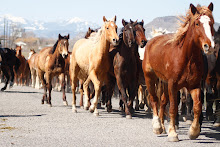If you find that it is the night before the final and you didn’t read the Books of Samuel and you can only remember David and Bathsheba’s love scene, as well as a bunch of red-stained cotton balls from the presentation…DON’T WORRY! Here are some tidbits you might want to remind yourself of for the final.
Samuel - The last of Israel’s judges and the prophet who anoints both Saul and David as king. Samuel fulfills political and priestly duties for Israel, but he ushers in Israel’s monarchy mainly as a prophet—one who pronounces God’s words and decisions. Samuel’s stoic and aloof position in Israel allows Saul to struggle with God and his fate on his own.
David- David is a strong but unassuming shepherd who becomes God’s choice to replace Saul as king of Israel. He is humble yet self-possessed, readily dismissing human opinion. His humility becomes clear early in his youth, when he kills the giant Goliath with a sling stone, declining the opportunity to use Saul’s royal armor. As king, his foremost quality is obedience to God. For example, when his wife expresses embarrassment at David’s dancing while he marches into Jerusalem, he rebukes her, boasting that he will embarrass himself so long as it pleases God.
David’s mercy to others displays his selflessness—a product of his strenuous commitment to ethical ideals. His sense of propriety is striking when he refrains from killing Saul while Saul has his back turned. David scorns the easy opportunity to attack because he feels it would be morally wrong to strike God’s current anointed ruler. As king, David forgives the kingdom’s traitors, and executes the traitors of his enemies. When his own rebellious son dies, David cries aloud in public, “O my son Absalom, my son, my son Absalom!” (2 Samuel 18:33). His weeping suggests the depth of a father’s blind love for his son.
David’s mercy may also be interpreted as a product of his political aspirations. David refuses to kill Saul because he senses that whatever standards he imposes against the current king may one day be used against himself as ruler. Moreover, seeds of revolt have already been planted in the northern tribes of Israel by David’s reign, and the kingdom’s unity may be on shaky ground. King David shows mercy to his traitors, especially Absalom, because he wishes to quell emotions and court the graces of all his subjects. By this reading, David appears to be a pragmatist—one who acts not out of his or her ideals, but on the basis of what is practical or expedient. However, the Old Testament ultimately seems to suggest that David’s religious ideals do not conflict with his pragmatism.
Saul - Israel’s first king. After God chooses Saul to be king, Saul loses his divine right to rule Israel by committing two religious errors. Saul acts as a character foil to David, because his plot to murder David only highlights David’s mercy to Saul in return. Saul’s inner turmoil over the inscrutability of God’s exacting standards makes him a sympathetic but tragic figure.
Has the Lord as great delight in burnt offerings and sacrifices,
as in obedience to the voice of the Lord?
Surely, to obey is better than sacrifice,
and to heed than the fat of rams. . . .
Because you have rejected the word of the Lord,
he has also rejected you from being king.
(1 Samuel 15:22–23)
as in obedience to the voice of the Lord?
Surely, to obey is better than sacrifice,
and to heed than the fat of rams. . . .
Because you have rejected the word of the Lord,
he has also rejected you from being king.
(1 Samuel 15:22–23)
Absalom - David’s son, who attempts to overthrow his father’s throne. Absalom’s violent rise to power suggests that the evil that corrupts Israel comes from within.
Joab - King David’s loyal military commander. Joab serves as a foil to David’s successful combination of religion and politics. Joab’s reasonable desire to see justice and retribution delivered to the kingdom’s traitors emphasizes the unusual quality of David’s kindness to his enemies.
Book of Samuel 1
- Samuel’s Birth, Youth and Call to Be a Prophet (chs. 1–3)
- Israel Defeated by the Philistines; the Ark of God Taken and Restored (chs. 4–7)
· The people’s sinful request for a king (ch. 8)
· Samuel anoints Saul privately (9:1—10:16)
· Saul chosen to be king publicly (10:17–27)
· Saul’s choice as king confirmed (11:1–13)
· Saul’s reign inaugurated at a covenant renewal ceremony (11:14—12:2
· Saul’s Kingship a Failure (13:1—16:13)
· David enters Saul’s service (16:14—17:58)
The Rise of David…
- David becomes alienated from Saul (chs. 18–19)
- Jonathan protects David from Saul (ch. 20)
- David continues to elude Saul (21:1—22:5)
- Saul kills the priests at Nob (22:6–23)
- David rescues the people of Keilah (23:1–6)
- Saul continues to pursue David (23:7–29)
- David spares Saul’s life (ch. 24)
- David threatens Nabal’s life (ch. 25)
- David spares Saul’s life again (ch. 26)
- David enters Achish’s service (ch. 27)
- The End of Saul’s Reign (chs. 28–31)
Book of Samuel 2
- David’s Lament over Saul and Jonathan (ch. 1)
- David Becomes King over Judah (chs. 2–4)
- David Becomes King over All Israel (5:1–5)
- David Conquers Jerusalem (5:6–25)
- David Brings the Ark to Jerusalem (ch. 6)
- God Promises David an Everlasting Dynasty (ch. 7)
- The Extension of David’s Kingdom (ch. 8)
- David’s Faithfulness to His Covenant with Jonathan (ch. 9)
- David Commits Adultery and Murder (chs. 10–12)
- David Loses His Son Amnon (chs. 13–14)
- David Loses His Son Absalom (chs. 15–20)

No comments:
Post a Comment